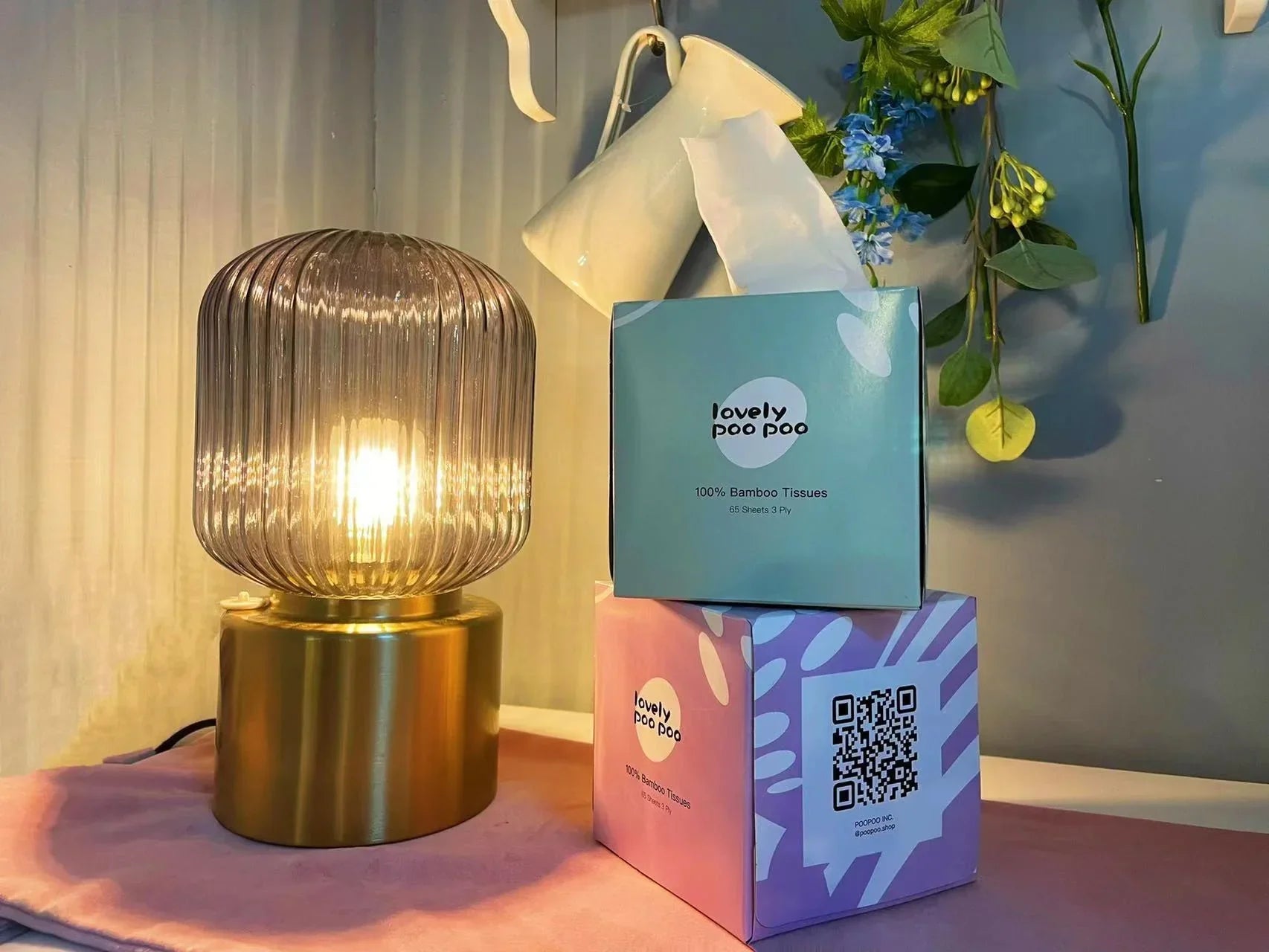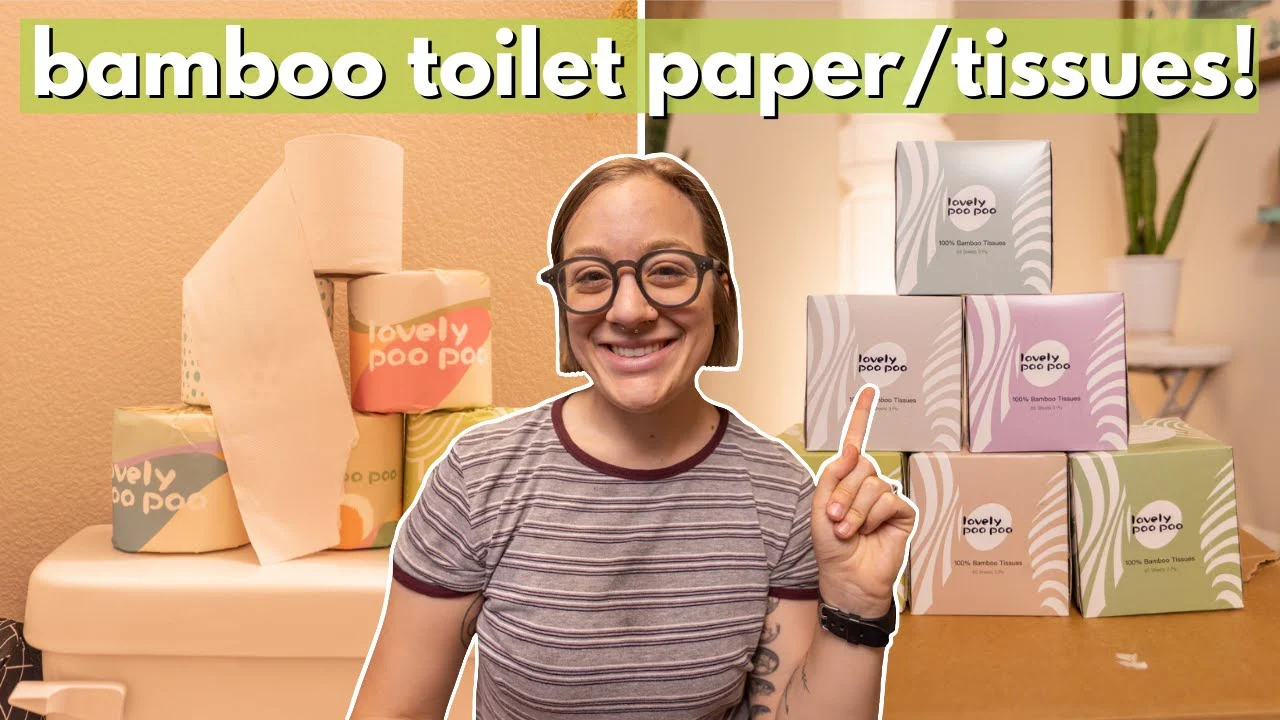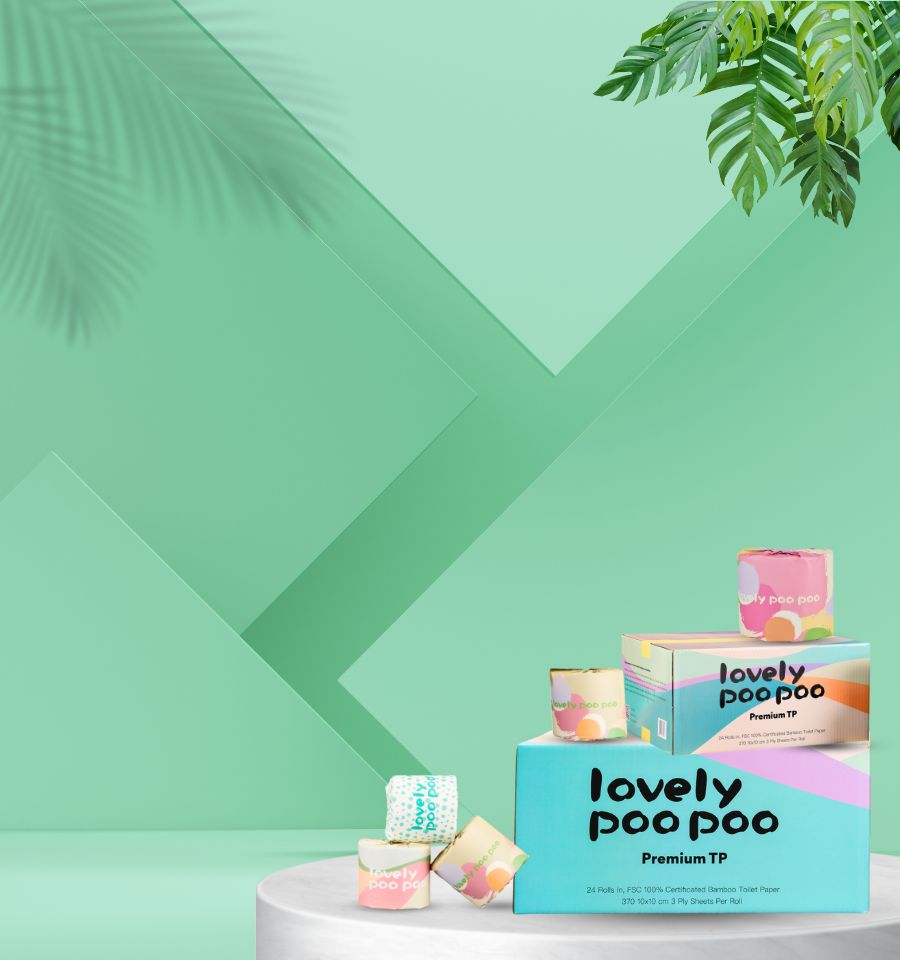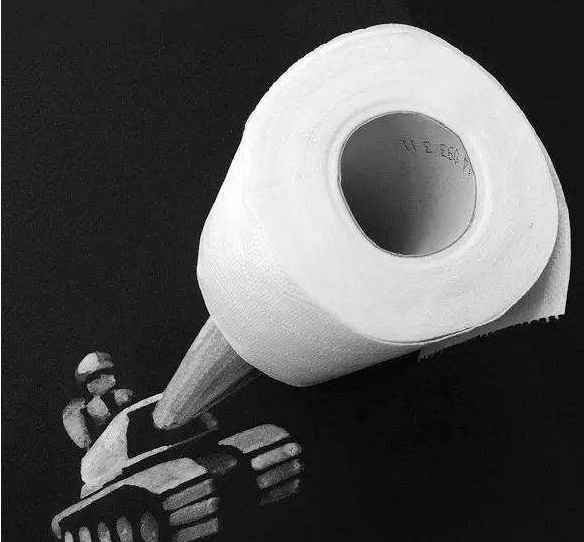In the realm of everyday choices, the impact of seemingly small decisions can ripple through our environment. At Lovely Poo Poo, we are committed to shedding light on the environmental consequences of conventional products, such as traditional toilet paper. In this blog, we explore the dangers associated with traditional toilet paper and why making the switch to Bamboo Toilet Papers is not just a choice but a crucial step towards a sustainable future. Let's dive into the hidden dangers and unveil the eco-friendly solution.
-
Deforestation: The Silent Consequence
- Rapid Resource Depletion: Traditional toilet paper production heavily relies on wood pulp, leading to extensive deforestation.
- Loss of Biodiversity: Deforestation disrupts ecosystems, causing a decline in biodiversity as habitats are destroyed.
-
Environmental Impact of Manufacturing Processes
- Chlorine Bleaching: Many traditional toilet papers undergo bleaching processes with chlorine, releasing harmful chemicals into the environment.
- Water Pollution: Residual chemicals from manufacturing may find their way into water sources, contributing to water pollution.
-
Non-Biodegradable Waste: A Pervasive Problem
- Slow Decomposition: Traditional toilet papers take longer to decompose in landfills, contributing to the global issue of non-biodegradable waste.
- Landfill Overload: The slow decomposition rate increases the burden on landfills, leading to overflow and environmental challenges.
-
Energy Consumption and Carbon Footprint
- High Energy Usage: Conventional toilet paper manufacturing processes often involve high energy consumption.
- Carbon Emissions: The energy-intensive processes contribute to the carbon footprint associated with traditional toilet paper.
-
Chemical Residues: A Threat to Health and the Environment
- Toxic Residues: Chemicals used in the production process may leave residues on the final product.
- Skin Irritation: These residues can potentially cause skin irritation and other health concerns for users.
Making the Switch: The Advantages of Bamboo Toilet Papers
- Renewable Resource: Bamboo is a fast-growing and renewable resource, providing an eco-friendly alternative to wood pulp.
- Reduced Deforestation: Choosing bamboo toilet papers helps in reducing the demand for traditional wood sources, mitigating the impact on forests.
-
Eco-Friendly Manufacturing Processes
- Chlorine-Free Processing: Bamboo toilet papers often undergo processing without chlorine bleach, minimizing the release of harmful chemicals.
- Reduced Water Usage: Bamboo cultivation and processing typically require less water compared to traditional toilet paper production.
-
Biodegradability: Returning to Nature
- Natural Decomposition: Bamboo toilet paper is biodegradable, breaking down naturally and returning to the environment.
- Reduced Environmental Impact: The biodegradable nature of bamboo toilet papers alleviates the strain on landfills and promotes responsible waste management.
-
Lower Carbon Footprint: Treading Lightly on the Planet
- Sustainable Cultivation: Bamboo cultivation has a lower environmental impact compared to traditional wood pulp sources.
- Carbon Neutral: The rapid growth of bamboo helps in absorbing carbon dioxide, contributing to a carbon-neutral cycle.
-
Skin-Friendly and Chemical-Free
- Gentle on Skin: Bamboo fibers are naturally soft and smooth, providing a gentle touch to the skin.
- Hypoallergenic: Bamboo has natural antimicrobial properties, making bamboo toilet paper a hypoallergenic option for sensitive skin.
-
Supporting Sustainable Practices: Every Roll Counts
- Consumer Influence: Consumer choices have the power to drive sustainable practices in the market.
- Encouraging Responsible Brands: Choosing Bamboo Toilet Papers encourages brands to adopt eco-friendly alternatives and practices.
Making Informed Choices: Your Role in a Sustainable Future
- Educate Yourself: Understand the environmental impact of the products you use, such as toilet paper.
- Read Labels: Look for certifications and information that indicate eco-friendly and sustainable practices.
- Spread Awareness: Share your knowledge with friends and family, encouraging them to make informed choices.
- Make the Switch: Transition to Bamboo Toilet Papers for a sustainable and eco-friendly bathroom routine.
In conclusion, the dangers associated with traditional toilet paper go beyond what meets the eye. As consumers, we have the power to make choices that align with our values and contribute to a healthier planet. Making the switch to Bamboo Toilet Papers is not just a step towards environmental awareness; it's a significant stride towards a more sustainable and eco-friendly future. Every roll matters, and together, we can make a positive impact on the world we live in.
Read more:
- Sowing Seeds of Change: A Journey Through the History of the Environmental Movement
- Healing the Earth: Unraveling the Mysteries of Acid Rain
- A Breath of Fresh Air: Demystifying WMO's Global Climate Observing System (GCOS)







